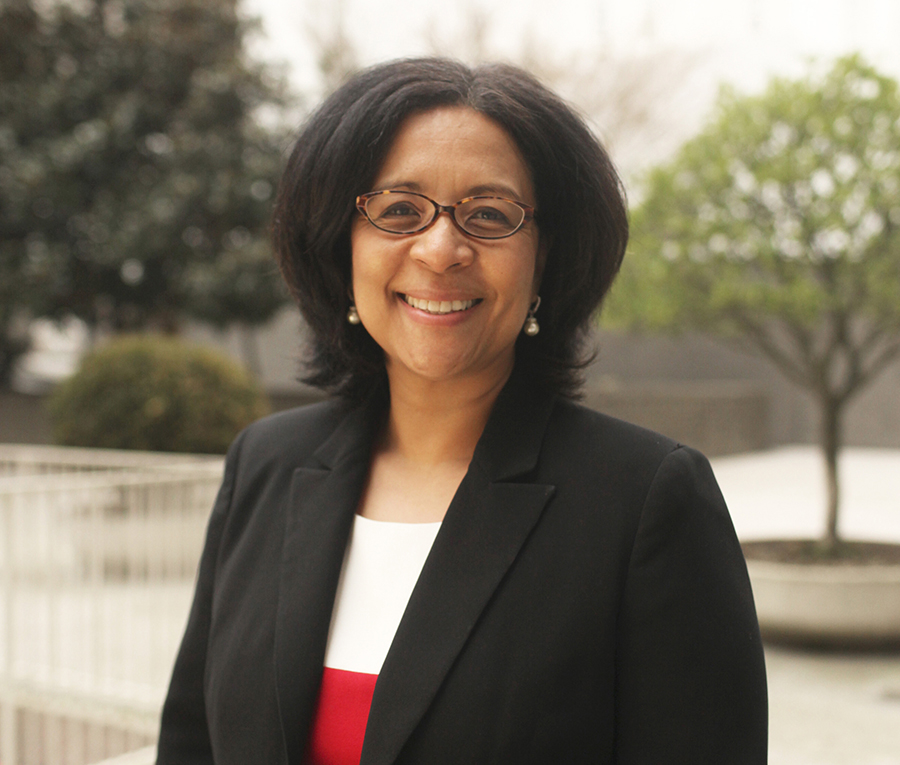By Joshua Holland
NORTHWEST ASIAN WEEKLY

Marilyn Strickland (Photo provided by Seattle Chamber)
At a time when some Seattle business leaders feel embattled by local government, many have started to ask, is there a seat for them at the table when it comes to helping to solve some of the region’s most pressing issues, like creating new housing and reducing the number of people experiencing homelessness?
At a recent Rotary Club of Seattle meeting, Marilyn Strickland, president and CEO of the Seattle Metropolitan Chamber of Commerce, delivered a speech to a crowd of Rotarians where she answered the questions on the minds of many business leaders.
As the leader of an organization representing more than 2,000 Seattle area companies,
Strickland is bullish in her support of employers and strongly advocated for their active engagement in creating solutions that go beyond being the City of Seattle’s ATM.
“We have to change the narrative,” said Strickland. “When a lot of people think of business, they think of a handful of large global companies that take the headlines, and they don’t look deeper into the fact that [there are also] companies doing good work in the community. And there are a lot of companies whose names we don’t know, who are doing good work as well.”
An unpopular head tax
Referring back to her arrival in Seattle in 2018, when the city was deeply embroiled in a debate about reintroducing the head tax, Strickland wasn’t shy in discussing her point of view when it comes to how City Council has engaged with business on solving regional issues.
“We knew the tax was unpopular — there were 46,000 signatures collected against it in just a month,” said Strickland. “But that wasn’t about businesses saying we don’t care about vulnerable people or we don’t believe we need more housing. It was about wanting accountability about how current funds are spent and seeing a tangible plan for how the money would be used. The business community has been supportive of raising revenue.
We supported Sound Transit 3. We supported an affordable housing Levy. We supported a school levy. So you can’t say that we don’t support things. We just need to know where the money is being spent and how effective it will be.”
Strickland believes this stems from a breakdown of trust in the relationship between city government and its community. Strickland comes from government herself. She served two terms as the mayor of Tacoma, in which she championed the role of local government as being focused on the nuts and bolts of basic governing — such as infrastructure, safety, and cleanliness of the city.
Homelessness and compassion
At the Rotary Club meeting, Strickland also encouraged the audience to think hard about not questioning the limits of compassion and the need to make some hard decisions about how to address issues related to mental health and drug use that are sometimes connected to people who are experiencing homelessness.
As she recounted her own past experience engaging with the difficult subject matter of helping people experiencing homelessness in Tacoma, Strickland admitted it’s not a quick fix solution. “In Tacoma, we created what we called stability sites — giant FEMA tents with supervision, security, showers, washers and dryers, running water, and a place for people to store their goods,” said Strickland. “Now the truth is people didn’t come to the stability sites and then go right out of homelessness a month or even six months later. But at least getting them off the streets and into a stability site is more humane than letting people live on the streets in squalor.”
Adding further weight to the conversation, Strickland pointed to the dire need for effective solutions to help people specifically with mental health issues. Citing the current state of the mental health system we have today, she asked the audience to keep in mind that some people experiencing homelessness and suffering from mental health issues will sometimes need ongoing care akin to assisted-living.
Hope and optimism
Having previously worked in both the public and private sector, Strickland seemed optimistic about the possibility of real collaboration.
Harking back again to her experience as mayor of Tacoma, she shared with the audience how she collaborated with the Tacoma Chamber to pass the City’s first transportation measure in 40 years. She helped to raise Tacoma school’s graduation rate to 87 percent, up from 55 percent, by getting Tacoma government organizations to partner with the business community, those in philanthropy, and others to improve outcomes for children in Tacoma.
“When Seattle moved to district elections, there was an opportunity for people to show their commitment to the nuts and bolts of government,” said Strickland. “2019 is an important election. We hope you show up and choose people who are thoughtful, open minded, and are willing to have a rational conversation with people of all sides and backgrounds.”
Joshua can be reached at info@nwasianweekly.com.




I’d like to know which business leaders feel embattled, and why they feel like the business community is the underserved one when it comes to issues around homelessness and affordable housing. Sorry, but how out of touch can they be?
Also, the head tax would have only affected businesses making $20 million a year or more. Small businesses would have never come close to being affected. Strickland and others didn’t oppose the head tax in the name of accountability; they opposed it to shield big businesses from paying their fair share to help address a wildly inequitable system.